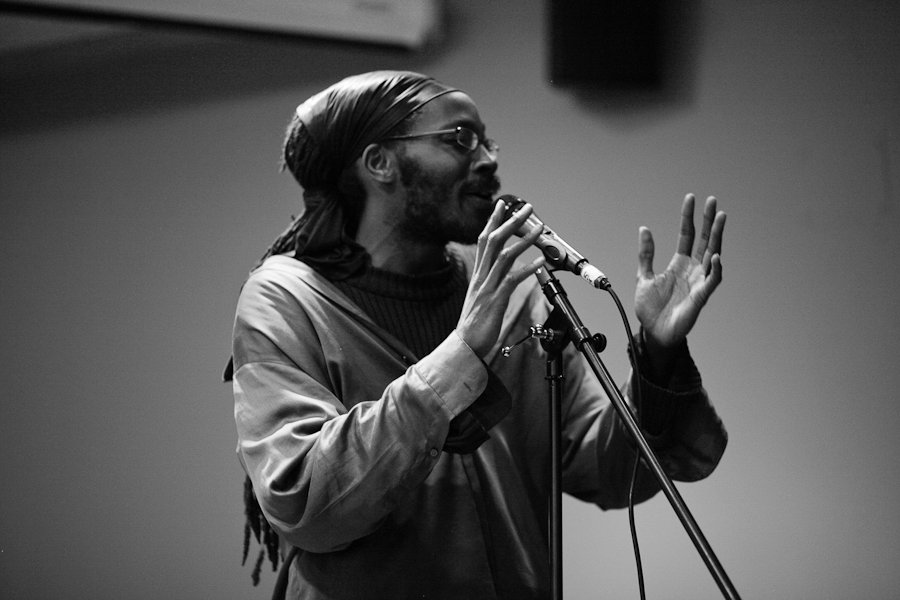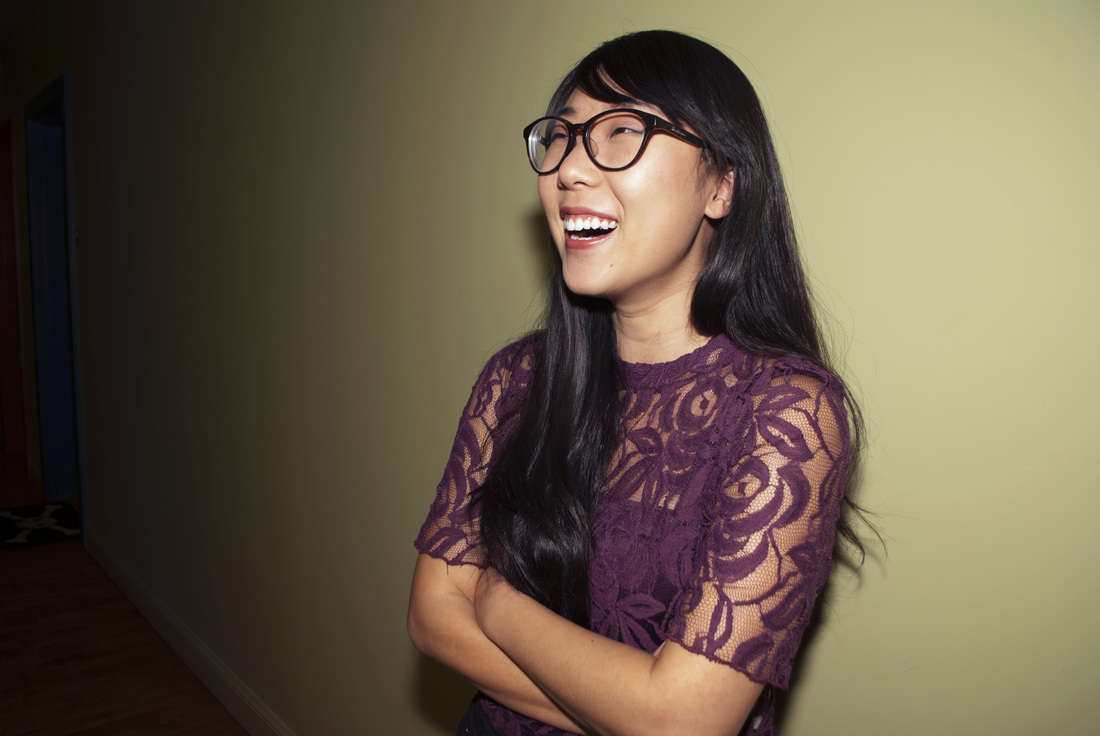|
On one hand, I could say that this poem spoke to me because of my appreciation for science. But despite the construct of the poem, that of a celebrity openly pining for a scientist, it is not actually about science. The word science is not even in the title. The title of the poem is “Open Letter from Jessica Alba to My Father,” written by the brilliant Franny Choi. In this poem, she blends reality and fiction to present an alien world to her audience. While it isn’t absolutely clear what real life truths are present in the poem, I can count on a few things probably being true: 1) Her father is scientist; 2) Dr. Choi does not pay much attention to celebrity culture; 3) Franny Choi loves her father. As for the fiction, I imagine that Jessica Alba is not familiar with Dr. Choi or his work. I imagine that US Weekly does not discuss lab coat fashion on their front page. I imagine that science does not dominate public discourse the way entertainment often does. But beyond clear cut fact and fiction, there is an exploration of what could be true, under the conditions set in the world of this poem. The conditions that the author provides are that the world has elevated scientists to celebrity status, and entertainers watch the glamour from the sidelines, even while still making grandiose films such as Spy Kids 4: All the Time in the World. In this poem, it is the scientists who enjoy (or endure?) the ever-present “peeping tom eyes of America.” Once these conditions are established, the critical lens in the poem begins to assert itself. In this fictional reality, Billy Bush would invade Dr. Choi’s privacy, while making an inaccurate assumption (to put it lightly) of Dr. Choi’s ethnicity. In this world, the life of a scientist would include designer test tubes, red carpet wardrobe malfunctions and award shows with silly nicknames. Essentially, the poem asks us if fame and celebrity is inherently a corrupting force. And as there would be no celebrity without an audience, the camera then swerves towards us. It asks, if we can sully something as incredible as science, what does that indicate about our influence upon anyone who dares to shine before us? The camera asks if we are, in fact, our own indictments. Earlier today, I read a twitter post about NBA player Lamar Odom awakening from a coma and seeming to recover from his unfortunate drug binge. In the post, the doctors planned to investigate the evidence in his blood for what exactly caused his initial lapse into the coma. How long ago did medical scientists wish they could do that? How many of them even imagined such information being accessible to them? Such an achievement might have seemed alien. Perhaps every achievement is alien until we’ve finally done it. Earlier today, I came across a link to a series of photos that an astronaut took of the planet from outer space. The images were humbling, and gorgeous. I then wondered what it’d be like for someone like Marie Curie or Leonardo da Vinci to have seen images as illuminating and pristine as these. This, to me, is the magic of science: the Earth has likely appeared this enchanting from outer space for millennia upon millennia, but it is only recently that our technology has allowed for us to witness it for ourselves. We’re constantly catching up to what has always existed, and this constant search is perhaps best for those who live for such exploration, those whose happiness does not hinge upon an endpoint. There are communities around the world full of individuals like Dr. Choi, who work diligently and quietly, inching their way towards the next development, the next discovery, the next revelation. Most of us will hear nothing about them. But is it better this way? Have we already seen what our collective obsessions with what we deem “attractive” and “exceptional” can do to people? Is Dr. Choi happier working in obscurity than he would be in the national spotlight? These are questions that the poem asks me, beneath its humorous outer layer. I don’t have fixed answers, yet. But I’ll admit that this alien world, where a movie star’s light is dimmed next to that of a quiet observer of bicarbonate transport, helps me to breathe a little easier. It’s a world I want to live in, even if only for a day, just to know what it feels like. This poem ignites that want, for me. I don’t know the reality of Franny Choi’s relationship with her father. Perhaps they adore each other. Perhaps they are estranged. In this poem, though, she loves him. In this poem, for me, two brilliant and inventive individuals shared one roof for many years. And one day, during a quiet moment watching television, he asked her about some celebrity on TV and she replied, “No, that isn’t Jessica Alba.” I imagine him then asking, “Are you sure?” I imagine she laughs and repeats her answer. The beginnings of a poem are born. I’ve included the text below, courtesy of Ms. Choi. "Open Letter from Jessica Alba to My Father" |
Vital Signs:
|



 RSS Feed
RSS Feed